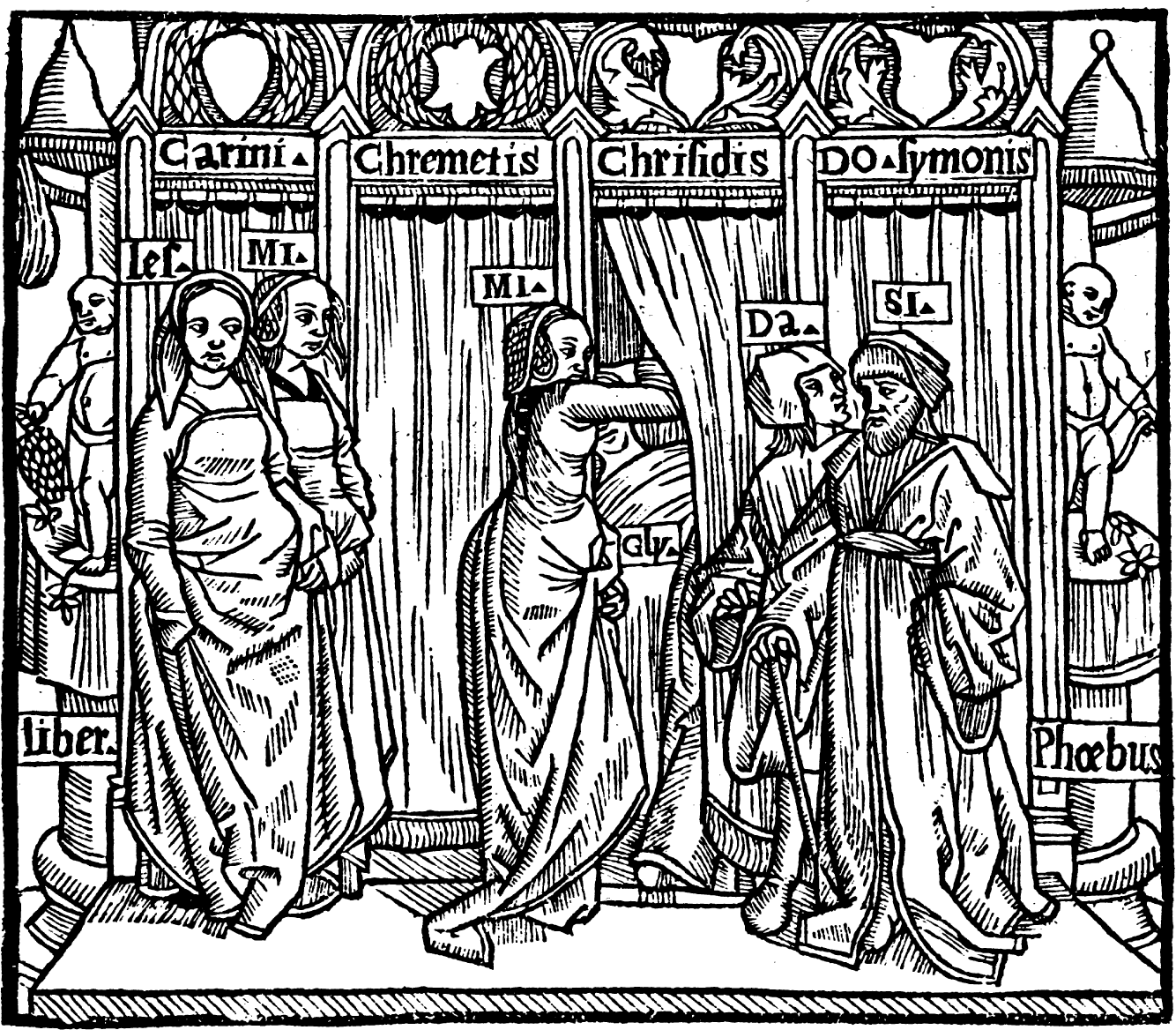
Egeon, therefore, must die unless he can pay a ransom of one thousand marks but the goods he has with him are worth no more than one hundred. He, too, is a merchant from Syracuse, but his life is to be forfeited under the Ephesian law since the law forbids anyone of Syracusian birth to enter Ephesus. Besides, the story Egeon tells of his family and the circumstances he is under, are different from what Plautus presents in BM.

This is an innovation by Shakespeare, and deviation from his Plautine model. Since, unlike the father in the BM, Egeon, as well as his wife, is alive, Shakespeare is able to transmit the preceding phases of the story through him. It is through Egeon that Shakespeare, in reply to Solinus's questions about Egeon's whereabouts, recounts the pathetic incidents the family has gone through. However, to let the audience know the tragic background of the story of the twins, he introduces the poignant and poetic father. 7 Shakespeare has discarded the explanatory prologue in his play. Plautus' BM is the undisputed main source which accounts for most of the story and the plot of Shakespeare's COE. 6 SD, moreover, has recourse to Christian terminology when he wants to shield his master and himself from external "evil" involvement. "Now, as I am a Christian, answer me," says SA, implying both his religious identity as well as his trust in its power and vulnerability.

5 Thus, that Ephesus is substituted for Epidamnus implies the tendency of a kind of baptism by Shakespeare of the Plautine play. Paul passed through Syracuse from Ephesus when he was traveling to Rome. The town was the cradle of the Romans, a pagan civilization, notorious for her mysterious and wicked atmosphere. That Shakespeare uses Ephesus as setting is related to and serves his purpose. Shakespeare's Ephesus is more overtly liable to evil than Plautus'. Shakespeare, however, while adapting the depiction of Epidamnus to Ephesus, frequently has his characters talk about the notoriety of the town. Although there are references to bad women, etc., in the town, he does not frequently allude to this. Morrison’s lines can barely be heard above the park’s summer noises.Īpart from that, the comic madness keeps revving up, with Messenio finally sorting out the siblings’ problems, followed by an endearing recognition scene between Hollyman and Ward.īryce Kulak’s songs and melodies underline the humour, and the composer/musician’s clearly having fun late in the play when he’s pulled into the action.Plautus, on the other hand, sets his play in Epidamnus. The only times the show loses the audience’s attention are the scene involving the wife’s father (Egan Ryan), whose long rant isn’t very funny, and the following episode with Seamus Morrison as a doctor called in to minister to the mad husband. Evans has fun playing all the female characters, including Menaechmus of Epidamnus’s angry wife and the prostitute who lives next door to the unhappily married couple.

Smith as the appropriately named Sponge, the Epidamnian brother’s outrageous hanger-on who’ll do anything for a good meal. Each has a distinct character: Ward’s brother is a smooth, cozening lounge lizard, while Hollyman’s is prone to explosive bursts of anger and a resulting need to check his blood pressure.ĭirector Melee Hutton’s production capitalizes on the outsized performances and energy of the cast, which includes Adrian Proszowki as the Syracusan brother’s sensible slave Messenio and Jeffrey R. What makes the situation even funnier is that the twins (Wayne Ward as Menaechmus of Epidamnus and Ryan Hollyman as Menaechmus of Syracuse) look nothing alike. Using the frame of a travelling carnival hosted by a fortune-telling producer (Sarah Evans), the presentation gives us the plot right up front: twin brothers born in Syracuse but separated as boys are eventually reunited in the city of Epidamnus, despite the fact that friends and family keep mixing them up. The Stone Circle Project’s production of The Menaechmus Twins, dating from 200 BC, goes right to the source. You rarely get to see a play by the Roman comic playwright Plautus, though you can trace his gags and characters in a current Stratford musical, A Funny Thing Happened On The Way To The Forum. The circus may not be in town, but the carnival troupe in Withrow Park offers lots of comic entertainment if you’re in the mood for vigorous outdoor theatre.

To August 9, Tuesday-Sunday 6 pm, matinees Saturday-Sunday 2 pm. Presented by Theatreworks Productions’ Stone Circle Project at Withrow Park (south of Danforth, between Logan and Carlaw). THE MENAECHMUS TWINS by Plautus, directed by Melee Hutton.


 0 kommentar(er)
0 kommentar(er)
